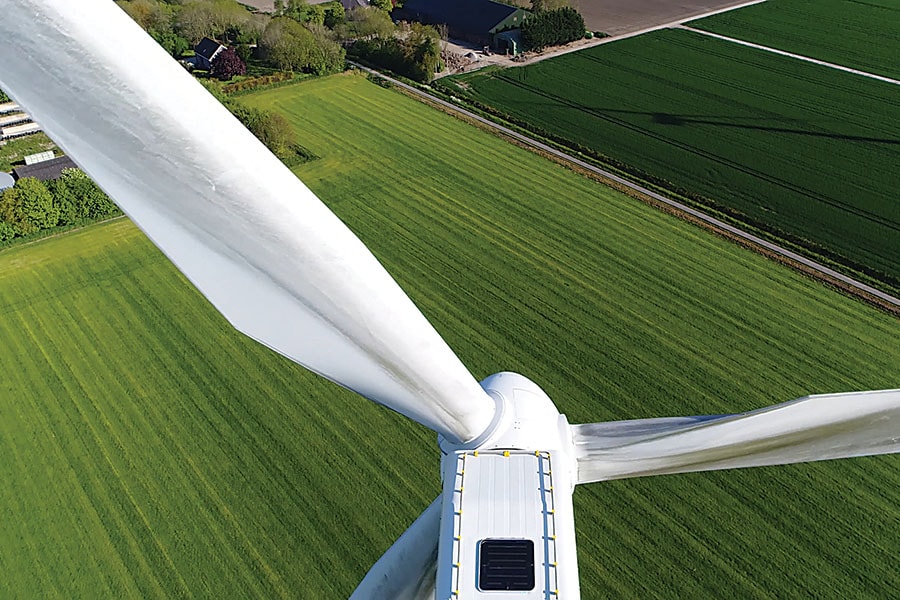
2022 will be the year of green transition: Cyril Shroff, Richa Roy
This year, environment, social and governance norms will be embedded not just in law and regulation but also in business plans and culture, managing partner; and partner, Cyril Amarchand Mangaldas, write
 The green transition will not encumber economic growth, but instead catalyse an economic transformation that could propel inclusion and growth
The green transition will not encumber economic growth, but instead catalyse an economic transformation that could propel inclusion and growth
Image: Shutterstock
 This a pivot or perish moment for humanity itself, not just businesses. Climate change, extreme weather events, zoonotic diseases, including the current pandemic, are not distant dystopia, but are currently ongoing. It is, therefore, inevitable that the two enduring changes of the pandemic’s last two years are the digital transformation of business and human behaviour, and the embedding of ESG (environmental, social and governance) in all aspects of life—a complete reorientation of business behaviour, and the laws and regulations that govern that. This also presents massive opportunities for Indian businesses. A World Economic Forum-AT Kearney report states that India’s transition to a net-zero economy could create over 50 million jobs and contribute more than $1 trillion in economic impact by 2030 and 15 trillion by 2070.
This a pivot or perish moment for humanity itself, not just businesses. Climate change, extreme weather events, zoonotic diseases, including the current pandemic, are not distant dystopia, but are currently ongoing. It is, therefore, inevitable that the two enduring changes of the pandemic’s last two years are the digital transformation of business and human behaviour, and the embedding of ESG (environmental, social and governance) in all aspects of life—a complete reorientation of business behaviour, and the laws and regulations that govern that. This also presents massive opportunities for Indian businesses. A World Economic Forum-AT Kearney report states that India’s transition to a net-zero economy could create over 50 million jobs and contribute more than $1 trillion in economic impact by 2030 and 15 trillion by 2070.
The Intergovernmental Panel on Climate Change report, published in 2021, underscored significant risks of climate change to India, in recognition of which the prime minister made ambitious and potentially transformational commitments at the Glasgow COP-26. Each of these will require the private sector and companies to act upon the obligations placed on them under Indian public and private law. This is no longer an ‘optional extra’ or ‘good to have for Indian businesses’, but a core strategic priority, with businesses metamorphosing from ‘core’ polluting sectors to ‘green’ ones. The green transition will not encumber economic growth, but instead catalyse an economic transformation that could propel inclusion and growth.
Indian law and regulations have been alive to climate change issues for some time. For instance, the Companies Act, 2013, under section 134(m), mandates companies to include a report by their board of directors on the steps taken for conservation of energy along with the company’s financial statements.
Greening financial regulation
The Bank of International Settlements (BIS), the central bank of central banks and convening authority of financial regulators, published a report titled ‘Green Swan’ in 2021. Just as the pandemic is a black swan event and the grey rhino of climate change looms large, the BIS report warned of ‘green swan’ risks: Potentially extremely financially disruptive events on account of climate change that could be behind the next systemic financial crisis. The study noted that although the impacts of climate change are highly uncertain, there is a high degree of certainty that some combination of physical and transition risks will materialise in the future.(This story appears in the 30 November, -0001 issue of Forbes India. To visit our Archives, click here.)



 The RBI could mandate banks and NBFCs to deploy liquidity in green and blue bonds, in addition to extending loans and advances to green projects
The RBI could mandate banks and NBFCs to deploy liquidity in green and blue bonds, in addition to extending loans and advances to green projects




